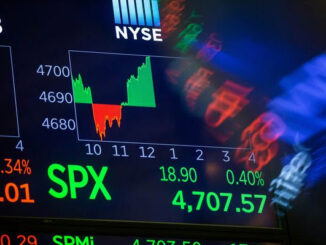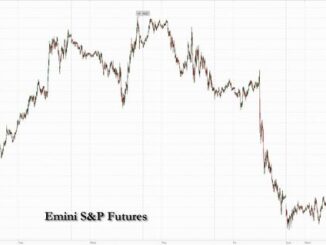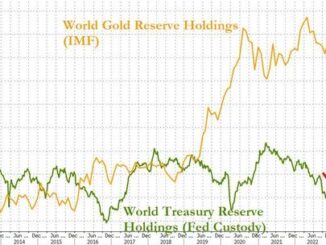
Beijing has been actively investing in manufacturing to support the economy in light of the real-estate crisis
China’s decision to focus its economic efforts on manufacturing could provoke a new trade war with other global industrial powers, Bloomberg analysts warned on Monday.
With growth dampened by economic troubles such as the lingering effects of the Covid-19 pandemic and the real-estate sector crisis that has plagued the country for the last two years, Beijing has begun to invest heavily in manufacturing. This strategy has been apparent by the sharp increase in lending to industrial enterprises, which soared by 38.2% year-on-year in the first three quarters of 2023, according to data from China’s central bank. In comparison, outstanding loans to the property sector fell by 0.2% in the same period.
Overall investment in the manufacturing sector also jumped, by 6.3% in the first nine months of 2023 year-on-year and by 11.3% in high-tech manufacturing in particular, according to data from China’s National Bureau of Statistics.
Meanwhile, China has attained a surplus of manufactured goods that has reached around 2% of global GDP, a level unseen since the US after World War II, according to Bloomberg Intelligence. Analysts estimate that about 45% of China’s manufactured goods are exported, from cars to washing machines, since domestic demand is unable to keep up with output. Beijing has been particularly successful in producing and exporting electric vehicles, batteries, and solar panels. The value of such exports grew 42% year-on-year in the first three quarters of 2023, according to official statistics.
While the focus on manufacturing has so far helped the country avoid a recession similar to what befell the US following its own housing market meltdown in 2008, it risks creating imbalances in global production that could lead to increased trade tensions with other countries, analysts warn.
Beijing’s focus on “industrial upgrading” is curtailing imports from countries such as Germany, South Korea, and Japan, which used to provide Chinese factories with hi-tech components. It could also lead to an oversupply of goods “in industries that China is investing in very heavily,” as US Treasury Secretary Janet Yellen warned in November.
“The positive element of this is that there are gonna be some technological success stories. That’s good… The problem with that is, there’s a big question to how much the rest of the world is gonna put up with ever-growing Chinese trade surpluses. And you’re already starting to see some protectionist backlash,” Arthur Kroeber, head of research at economic consultancy Gavekal Dragonomics, told Bloomberg. This backlash is already apparent in US efforts to deny China access to its advanced technology and the EU’s recent probes into Chinese electric vehicles, analysts say.
ENB Top News
ENB
Energy Dashboard
ENB Podcast
ENB Substack



